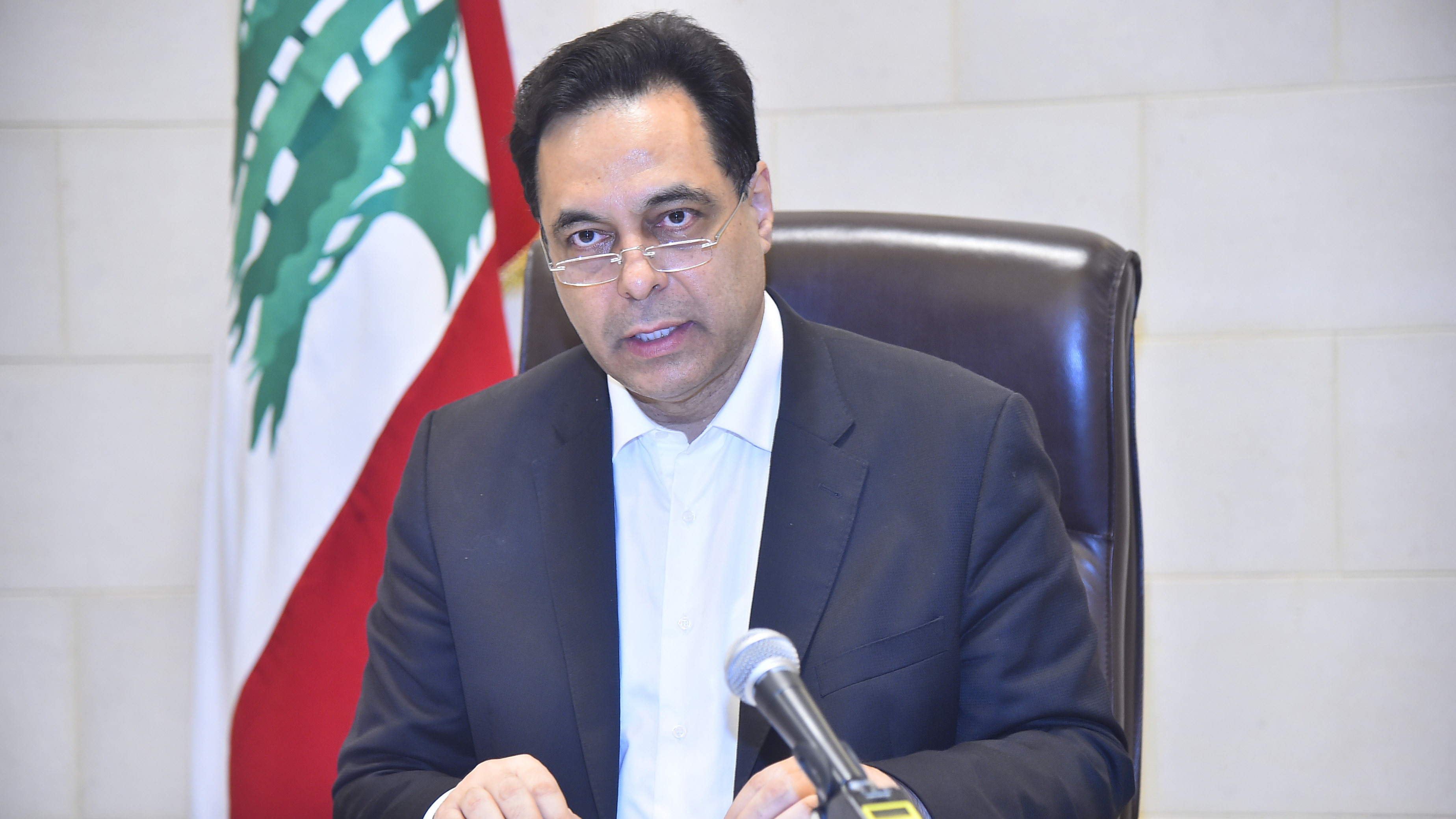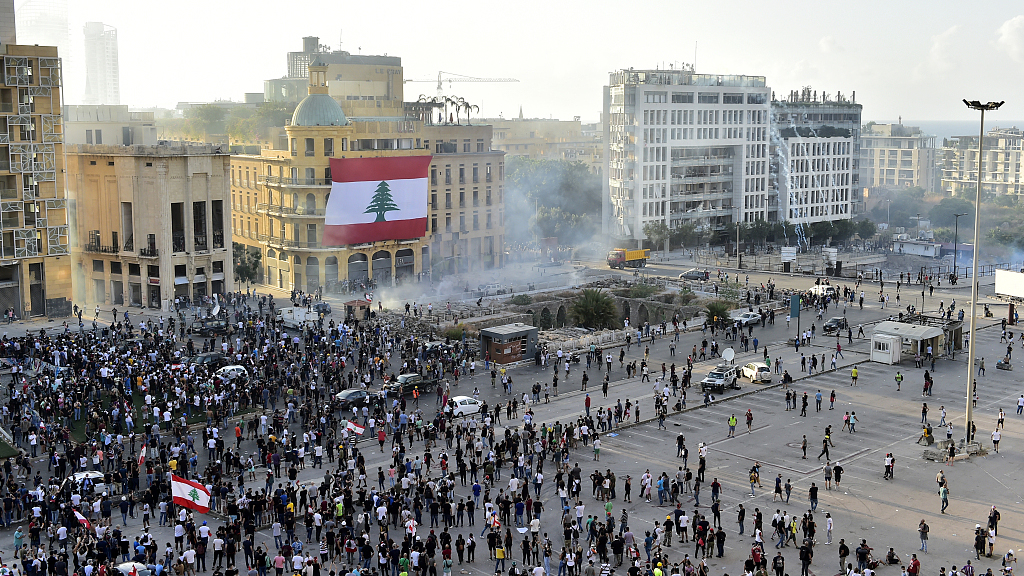00:37

Lebanon's Prime Minister Hassan Diab vowed to hold early elections as his beleaguered government faced calls to resign on Saturday night television, after angry protesters occupied the country's foreign, environment and economic ministries.
Demonstrators called for the downfall of Lebanon's ruling elite five days after two major blasts ripped through the capital of Beirut causing casualties and widespread destruction.
The Banking Association, which protesters blame for the country's worsening financial crisis, was also taken over by protesters and set ablaze.
As many as 238 people have been injured due to the demonstration, according to Lebanese Red Cross, while a policeman has died.
02:01

The 2019 protest was initially triggered by planned taxes on gasoline and tobacco. But it later evolved into a nation-wide condemnation of the stagnant economy, high unemployment and endemic corruption in the public sector and the government's failure to provide basic services such as electricity and water.
Diab was appointed as the new prime minister to lead the new 20-member cabinet in January.
The new round of protests resumed after a short pause during the coronavirus lockdown, but reignited by the Beirut explosions which killed 158 people and wounded more than 6,000.
Hours after the new protest broke out, Diab said he would introduce a law calling for early elections but said he would remain in government for two months until major parties can reach an agreement, which can again buy him more time to stay in power.
The announcement came right before an international aid conference co-hosted by French President Emmanuel Macron and the United Nations Secretary-General Antonio Guterres to support Lebanon.
The video conference will see the participation of U.S. President Donald Trump, Britain Prime Minister Boris Johnson, Jordan King Abdullah II, Egypt President Abdel Fattah el-Sissi and other leaders from Russia, China and the European Union.